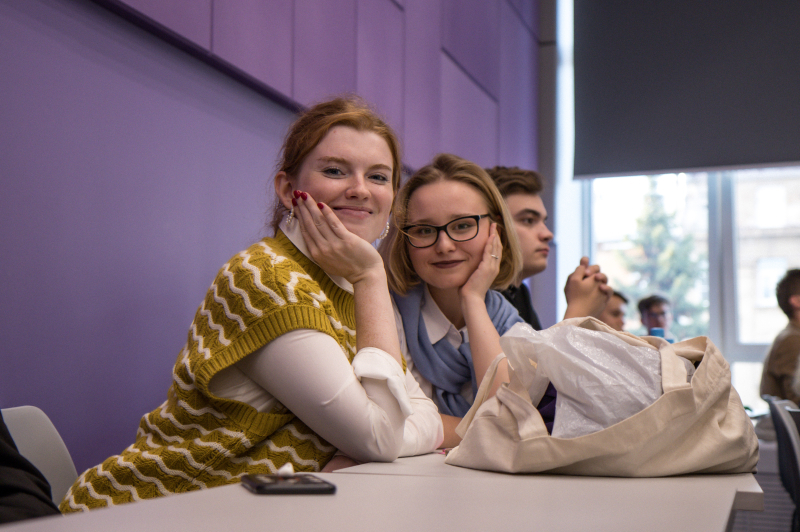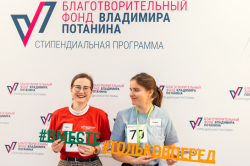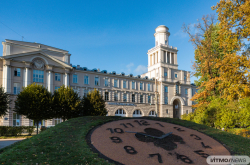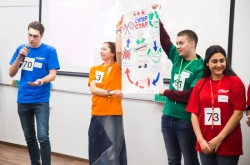The Vladimir Potanin Foundation scholarship competition is part of the foundation’s scholarship program, which seeks to bring together outstanding and ambitious students and assist them in reaching their full potential by strengthening their social and creative skills.
The contest is designed for full-time Master’s students and other levels of education included in the pilot project from 75 universities defined by the foundation.
Applications must be submitted by November 20.
The competition will be held in two stages:
-
Until December 19, the experts will review participants' applications, which must detail their personal ambitions, life position, and dissertation topic;
-
From January 25 to February 10, 2024, participants will take part in individual and team activities, including business games, interviews, case studies, and so on.
-
The results of the contest will be announced no later than February 28, 2024. The experts will name 750 contestants who will be granted a monthly stipend of 25,000 rubles till they complete their studies.
Last year, the contest welcomed a total of 6,410 contestants. Of 750 winners, 61 were from ITMO, keeping it in the top three among all the universities participating in the program for the third year in a row.
Learn more about the competition on its official website and follow its Telegram channel to receive updates and helpful materials (both sources in Russian).
ITMO.NEWS talked to several ITMO students and graduates to learn why they decided to join the contest and what helped them along the way.
Maria Dmitrieva
A first-year PhD student at the ChemBio Cluster
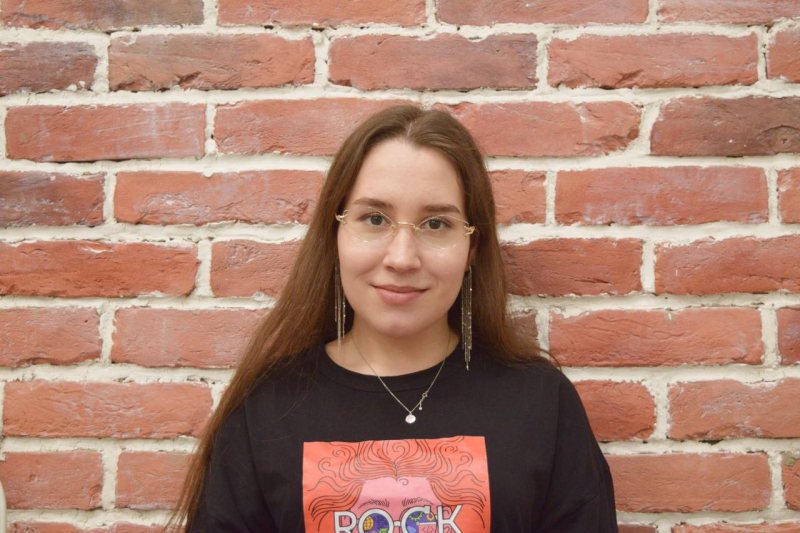
Maria Dmitrieva. Photo courtesy of the subject
Personally, I’ve participated in the contest twice – the first time that I tried, I failed to get into even the first round. This made me analyze what I did wrong there and how I can build my portfolio. Then, I received a grant from St. Petersburg's Committee for Science and Higher Education for developing a hydrogel dressing with pH modeling ability for chronic wounds treatment, won several awards at conferences, and mentored school students at the program Sirius.Leto.
As I see it now, my mentor experience was the one that made me stand out among other contestants. It showed that I know how to manage teams and efficiently teach complex topics to kids. Together with my students, we built three smart sorbents based on nanocrystalline chitin and presented them at such big-shot events as the Congress of Young Scientists, the contest Great Challenges, and the National Scientific and Practical Conference named after Zhores Alferov.
The tasks in the second round were diverse: we needed to write stories about ourselves and our favorite subjects, create study schedules, and even model a town with both great infrastructure and living conditions. I believe that here it’s crucial to stay yourself and not shy away from demonstrating your best qualities. I’m cheerful and kind-hearted, so I tried my best to make sure that all teammates had the chance to speak up and contribute to the whole.
The biggest challenge in the contest was essays. We needed to write in a way that reflected our personality and moved the experts. This was where my family and friends helped a lot. They read my essays and gave their advice.
Vera Viktorova
A Master’s graduate of the Faculty of Technological Management and Innovations
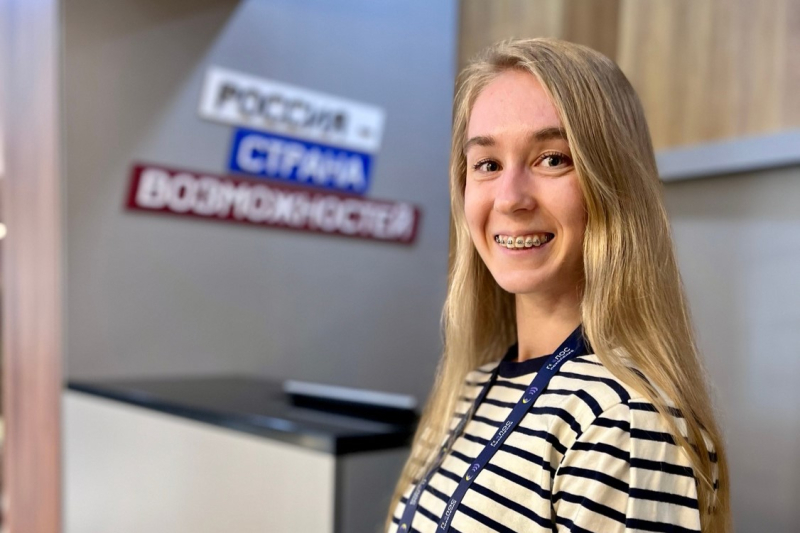
Vera Viktorova. Photo courtesy of the subject
This wasn’t my first time. I won a scholarship from the Government of St. Petersburg when I was a Bachelor’s student. However, this scholarship is indeed more than a stipend. The key motivation for me was an opportunity to join the ranks of the program’s winners, meet brilliant people, and get access to additional resources.
It’s important to never doubt yourself, even in the face of tough competition. I decided to list not all, but only my major wins – the ones that went best in line with my ambitions. Experts should be able to read off your position and the potential impact of your idea. For the competition, I focused on the achievements I made with my project FinPlay. Knowing that financial illiteracy is still an issue, I went on to launch a special school for kids and adults alike where we talk about a variety of topics: from budgeting and investing to calculating interest rates.
I got to meet other participants at the second stage of the contest. That was a great experience. The tasks were different, but each was a chance to prove yourself both individually and as part of the team. Define your role – be it a leader, an idea generator, or any other – be proactive, but don’t hog the covers, and, most importantly, have fun. There, I saw myself from another perspective and even learned something.
The victory allowed me to move forward with FinPlay and take additional courses to boost my competencies. Even the selection process taught me to push further no matter what, not be afraid to speak up, and navigate hardships gracefully. I also became the winner of the foundation’s school, which boosted me as an individual and professional alike.
Inessa Kevler
A second-year Master’s student at the Institute of International Development and Partnership
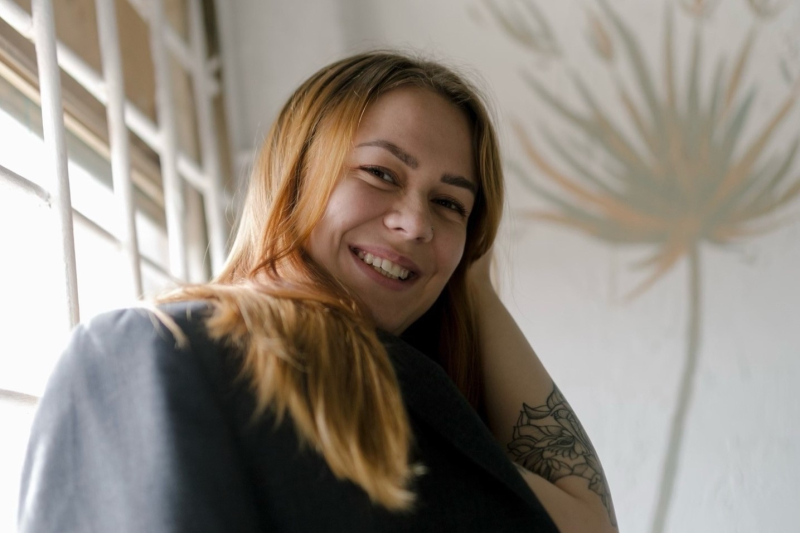
Inessa Kevler. Photo courtesy of the subject
I decided to change my specialization after I got my Bachelor’s. I studied pedagogy at Moscow City University for my Bachelor’s but then decided to opt for digital humanities at ITMO. Having had no such experience before, I figured the project would be a massive financial boost to start a new chapter, as I did myself.
I have quite a diverse background. In addition to pedagogy, I have also worked in marketing for six years. So, when putting my application together, I had to make a coherent narrative out of all business projects, volunteer activities, and studies I had or took part in. I wanted my application to convey that whatever I lay my hand on, I strive to succeed.
The second round is all about putting your knowledge into action. Be ready for intensive work in teams, decide in advance on your role or stick to it throughout the contest, pay attention to your teammates, and choose communication over formal results. Care more about cooperation rather than the scores you get.
The best students from various parts of Russia tend to become winners. The stipend let me get my mind off of making money and focus on what’s truly important – my career change and comeback to academia. Currently, I participate in a large-scale DH project, as well as work as a manager at the DH Center and a mentor for Master’s students. In addition, I’m also preparing for my PhD studies: I take part in international schools and collaborate with researchers from all over the world.
The victory in the competition makes an excellent line in your CV, as well.
Vadim Belyaev
A first-year PhD student at the Infochemistry Scientific Center
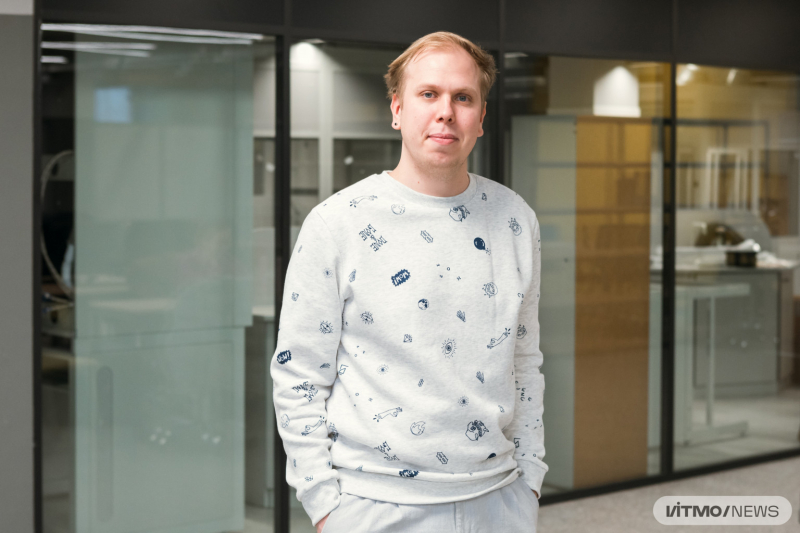
Vadim Belyaev. Photo by Dmitry Grigoryev / ITMO.NEWS
I learned about the contest in the first year of my Master’s studies, but I didn’t think I was qualified and competent enough to win it. My doubts were gone next year – and I applied. Before this stipend, I also had a grant from the Government of the Russian Federation and an enhanced stipend from ITMO University.
In my application, I focused primarily on my research and conference experiences. As a Master’s student, I worked on an ML-assisted electrochemical sensor for determining antibiotics in milk. That was the topic of my graduation paper. I also mentioned that I had organized several events – my school's trips to Yagodnoe, various quest games in photonics, the finals of ITMO.Megabattle, and many more. Here, you need to be creative and recall all the achievements and events that show your leadership skills.
Then, we needed to work on tasks in teams. In this round, you need to show that you’re a leader or a person whose opinion is taken into account and acted upon. I believe it’s better to thoroughly study the contest’s rules than become a team lead and give orders to others. Though I wasn’t a leader, I gave solid advice and most of it was taken. As a result, I got the stipend, which is a nice bonus.
